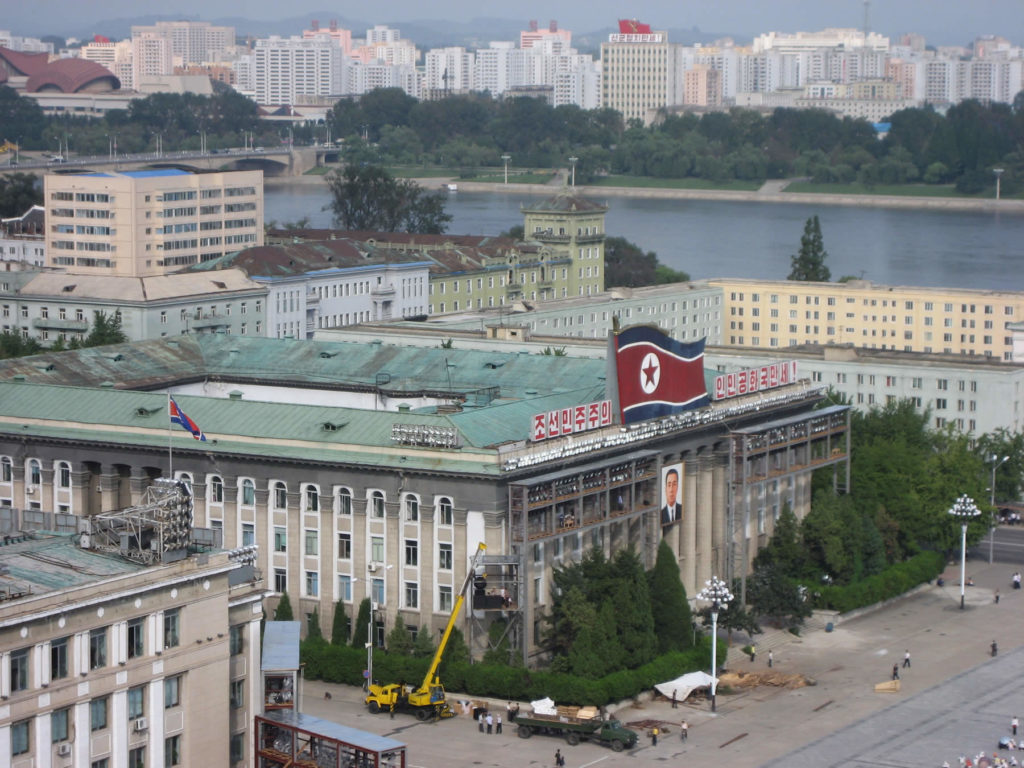The Peninsula
What to Read in Choe Son-hui’s News Conference

By Yonho Kim
North Korea threatened to suspend denuclearization talks with the United States about two weeks after the Hanoi summit between President Donald Trump and North Korean leader Kim Jong-un failed. North Korean Vice Foreign Minister Choe Son-hui at a news conference in Pyongyang said that Kim was considering discontinuing the 15 month-long moratorium on nuclear and missile tests, citing “the gangster-like stand of the U.S.” Choe also made it clear that North Korea did not intend to make any compromise on the denuclearization deal. Choe’s remarks reinforced pessimistic prospects of the engagement process with the North among the Korea watchers although there is a suspicion that Choe’s warnings are part of Pyongyang’s typical playbook in an effort to win leverage before resuming talks. Before jumping to a conclusion on Pyongyang’s intention, we have to take a closer look at North Korea’s message control toward the outside world and the fact that she has emerged as the spokesperson dealing with foreign media on the denuclearization negotiations.
While harshly criticizing Secretary of State Mike Pompeo and National Security Advisor John Bolton for creating an “atmosphere of hostility and mistrust” at the summit in Hanoi last month, Choe emphasized that the chemistry between Trump and Kim is “mysteriously wonderful.” Obviously, Pyongyang sent a strong signal that it still relies on the personal ties between the two leaders, leaving door open for resuming top-down negotiations. Choe even said that Kim traveled all the way to Hanoi to build trust with Trump despite the military being opposed to the idea of giving up the nuclear program.
Secretary Pompeo quickly picked up the underlying message from Choe and tried to avoid rhetorical escalation. He dismissed Choe’s characterizing U.S. position on the denuclearization of the Korean peninsula as ‘gangster-like’ and pointed to professional conversations he had with the North Koreans following rhetorical attack on him last year. National Security Advisor Bolton, a longtime hawk on North Korea, complained that Choe’s remarks on his role at the Hanoi summit was “inaccurate,” but stopped short of saying she told a lie. For the moment it seems neither side wants to see the engagement process collapse.
It is notable that after the failed Hanoi summit North Korea chose the format of news conference by top Foreign Ministry officials to clarify their positions and make complaints about the U.S. “eccentric” negotiation patterns. Right after the summit, North Korean Foreign Minister Ri Yong-ho and Choe held a news conference in Hanoi and it was noted by a senior State Department official as an encouraging sign and a rare opportunity for the foreign media to have an open exchange with the North. Pyongyang used to demonstrate its dissatisfaction with the U.S. through official statements by state agencies or state media. Interestingly enough, it was Choe who announced her statement through the state-run Korean Central News Agency (KCNA) last May before the Singapore summit. In the statement she threatened to cancel the planned summit, denouncing Vice President Mike Pence as a ‘political dummy’ for demanding complete, verifiable, and irreversible denuclearization (CVID).
But this time, at least until the time of this writing, North Korean state media has not reported anything about Ri and Choe’s Hanoi and Choe’s Pyongyang news conferences. To the outside world, Pyongyang kept blaming the U.S. for the failed Hanoi summit and carefully stepped up its warning to the Trump administration. In contrast, no changes are detected in the message toward the domestic audience since Rodong Sinmum, the official mouthpiece of the ruling Worker’s Party of Korea, reported in early March that Trump and Kim strengthened mutual respect and trust in Hanoi and agreed to continue constructive dialogues. Pyongyang might be worried that any official hawkish statement on Washington’s demands at the Hanoi summit would let the domestic audience suspect the supreme leader failed at the negotiation table with the president of the United States.
Choe said Kim will make a final decision on whether to suspend the test moratorium and said she “expects” he will clarify his position soon. This sounds like a warning that Pyongyang may be heading to a “new way” that Kim indicated in his New Year’s Day speech earlier this year. The timing and substance of Kim’s official repositioning would depend on his observation of the U.S. reaction. Now the ball is on the net again.
Yonho Kim is a Non-Resident Fellow at the Korea Economic Institute of America. The views expressed here are the author’s alone.
Photo from David Stanley’s photostream on flickr Creative Commons.
